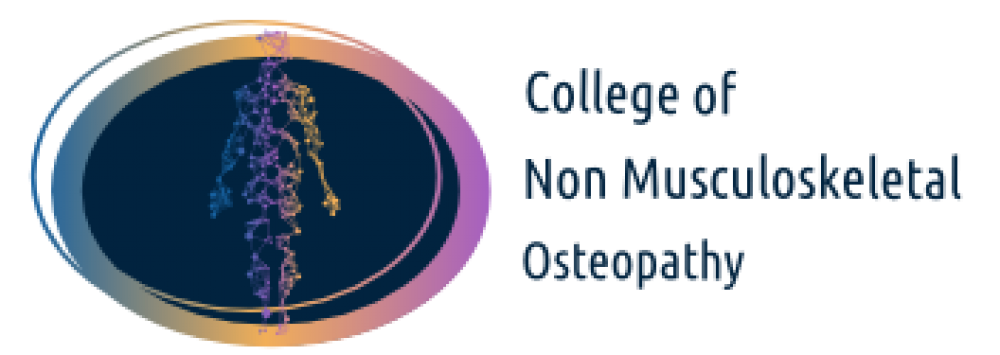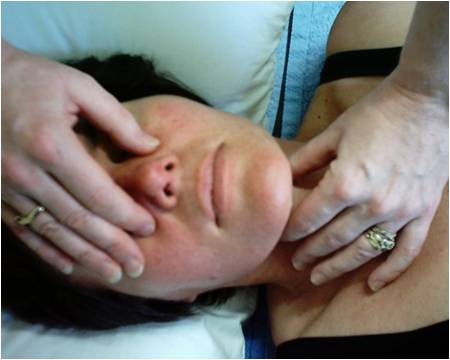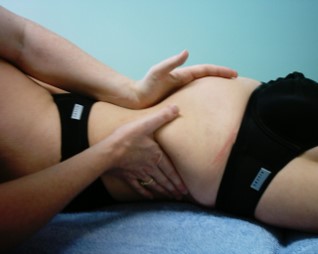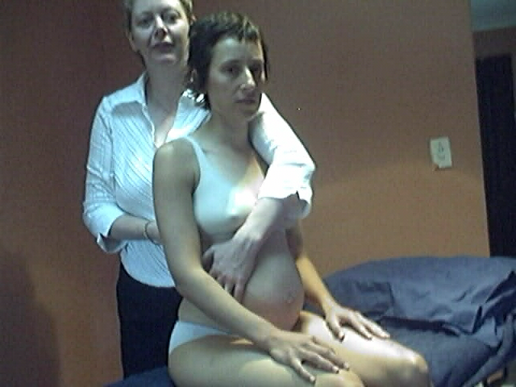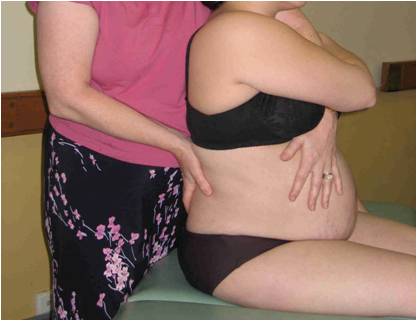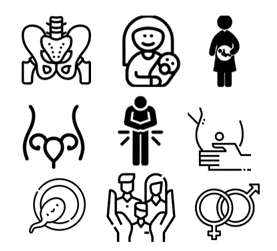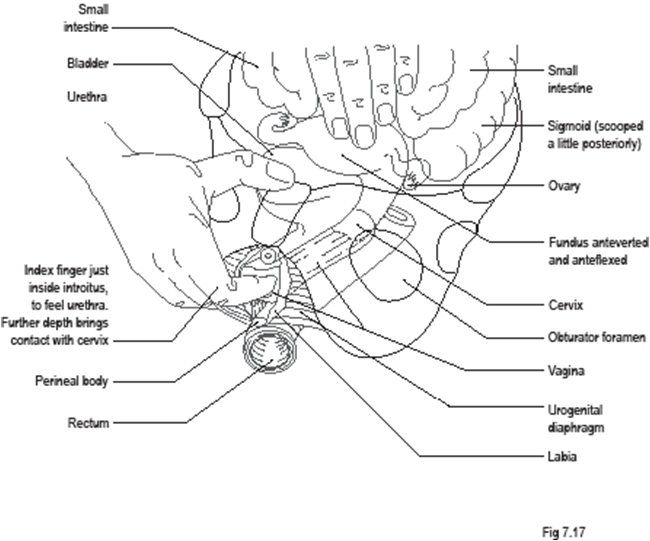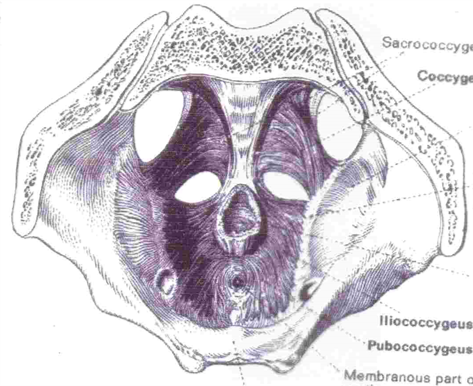ENROLMENT CLOSED FOR SEPT 2024.
NEXT PROGRAMMES WILL BE IN SEPT 2025-2026
See info below, or click on courses pages for details:
- WOMENS HEALTH PELVIC CARE COURSE
- WOMEN’S HEALTH CERTIFICATE – IN PERSON OR HYBRID + ONLINE
- WOMEN’S HEALTH DIPLOMA – IN PERSON OR HYBRID =+ ONLINE

Caroline delivers all lectures herself, Caroline oversees ALL the techniques and practicals, and Caroline manages all the clinical observations and participations herself – no substitutions here!
Learn to think physiologically, assess in 3D, take a multi-layered osteopathic perspective and enhance your clinical care.
2 options:-
1) Fully in person (you need to attend lectures / practicals in Bristol), and clinics are in Bristol Starting in October 2024. Year one and two options available.
4 lots of 3-day intensive blocks in person lectures with lots of practicals, per year. Access to extensive online revision material, one zoom tutorial a month for ongoing support over you enrolment duration – you can exit after year one (Bristol venue), which covers year one of the diploma (same format for year two of the Diploma).
4 separate clinical days / practical days (Bristol) for year one must be added to gain the Certificate, and after 4 further 4-day lecture blocks (Bristol), and a further 4-day clinical / practical days (Bristol), you can exit after year two with the Diploma.
Click here for more information
2) Hybrid – at home learning with pre-recorded lectures and resources, zoom tutorial support, (then you can add clinical and practical attendance in Ashby De La Zouch). Starts September 2024. Year one and year two options.
Spread over 2 years via online learning platform (moodle), with live zoom monthly tutorials and 6 in person clinical / practical days at various venues per year (you can exit at the end of year one with a Certificate in Women’s Health (WHC) and get a Diploma in Women’s Health at the end of year two (WHD). The 6 days in person must be done in one block – Ashby De La Zouch. You get hands on involvement with patients. All clinics and practicals overseen by Caroline. Huge online resource library and video bank. CLICK HERE FOR MORE DETAILS
All courses include:
1) huge amounts of hands-on and techniques
incredible clinical insights and information / guidance across the lifespan
2) no experience required.
3) male practitioners welcome!
4) lots of anatomy and physiology
5) yes, the programme is intense, but it is so worth it!
6) you can exit at the end of year one, and / or take a gap before completing in the next cycle if you like.
7) MASSES OF EVIDENCE
8) INTERNALS INSTRUCTION INCOUDED IN YEAR TWO (HYBRID AND F2F VERSIONS.
WATCH FREE CPD VIDEO ON WH OSTEOPATHY AT BOTTOM OF PAGE!
YEAR ONE / CERTIFICATE SUMMARY:
- ANATOMY AND PHYSIOLOGY
- AUTONOMICS, VISCERAL PAIN
- MICROBIOME AND IMMUNE CONSIDERATIONS IN WOMENS HEALTH
- UROGYNAECOLOGY AND PELVIC FLOOR
- DEVELOPMENT, HORMONES, BODY IMAGE, GROWTH
- ENDOCRINE DYNAMICS, FERTILITY AND OBSTETRICS
- BIRTH, BONDING, BREASTFEEDING
- POST PARTUM RECOVERY
- LIFESPAN ISSUES
- MENOPAUSE
- CHANGING UROGENTIAL AND MUSCULOSKELETAL FACTORS
- ONLINE PLATFORM AND TUTORIAL SUPPORT
- PRACTICAL INTENSIVES AND CLINICAL OBSERVATIONS DAYS.
YEAR TWO / DIPLOMA SUMMARY:
- CLINCAL ASSESSMENT REVIEW = CONSIDERING ALL THE FACTORS WITHIN THE CERTIFICATE CURRICULUM AND TAKING THEM TO THE NEXT LEVEL:
- COMPLEX CLINICAL PRESENTATIONS REVIEWED. STRONG FOCUS ON EVIDENCE AND RATIONAL APPORACHES TO PRACTICE.
- INTERNALS AND SENSITIVE AREAS WORK, CONSENTING, RISK MANAGEMENT AND ASSOCIATED ETHICAL AND CLINICAL CONSIDERATIONS.
- MANAGEMENT OF VARIOUS CONDITIONS EG fertility, endo, prolapse, diastasis, complex pregnancy, post partum, bladder disorders / cystitis, post surgical issues, cancer considerations, pelvic pain, breast care
- Working with the traumatised patients, and those with complex needs.
- CLINICAL PROTOCOLS = WHAT THEY ARE AND ARE NOT
- OUTCOMES ASSESSMENT – understanding how to monitor your clinic and when / to who to refer.
- UNDERSTANDING ORTHODOX MANAGEMENT AND INTERDISCIPLINARY ISSUES
- PRACTICAL TECHNIQUE INTENSIVE CLASSES AND CLINICAL OBSERVATION DAYS.
- ONLINE PLATFORM AND TUTORIAL SUPPORT
- EXTENSIVE EVIDENCE REVIEW AND CASE ANALYSIS
- HELPING YOU WORKSHOP COMPLEX PRESENSTATIONS
- DEVELOPING YOUR PERSONAL CLINCAL PROFESSIONAL FIELD OF CARE
| WOMENS HEALTH QUALIFICATIONS | ||
| CERTIFICATE | DIPLOMA | |
| Supplementary Module | Introduction to osteopathic and somatophysiological principles Learning how to learn – revision of concepts | Introduction to roles and boundaries in clinical practice Care plans, management, clinical audit, and outcomes measures Constructing an evidence-informed approach |
| MODULE ONE | Development of the body cavities and genitals Anatomical changes from children to adults Neuro-endocrine-immune system | Bladder and bowel function in girls Gender and identity issues Complex dynamics in puberty Hormonal balance across the lifespan |
| MODULE TWO | Development of immunity The role of the microbiome Function, physiology and somatovisceral integration The basics of visceral pain and visceral reflexes | Adolescent mental health Interoception, body image and sense of self Complexities of endocrine imbalance and dysbiosis on visceral pain Complex visceral pain and dysautonomia |
| MODULE THREE | Being female Gender bias in research Social dynamics, relational safety Basics of fertility, conception and gynaecological function | Trauma dynamics Fear, freeze, visceral pain Effects on physiology, function and fertility, subfertility and assisted conception Complex gynae, endometriosis, adhesions |
| EXAM / ASSESSMENT ONE | ||
| MODULE FOUR | Pregnancy and general obstetric dynamics Optimal foetal positioning | Considering pregnancy complications, accompanying disorders, complex pain and biomechanical considerations, |
| MODULE FIVE | Biomechanics in pregnancy Orthopaedic and tissue changes and strains Third trimester | Foetal position, high risk pregnancies, complex therapeutic alliance and interprofessional considerations pelvic instability and diastasis rehab |
| MODULE SIX | Preparation for labour and delivery Birth trauma | Complex birth trauma and injury Pregnancy loss Premature delivery |
| EXAM / ASSESSMENT TWO | ||
| MODULE SEVEN | Maternal mental health The fourth trimester Breastfeeding and initial recovery Body cavity and postural recovery | Postpartum depression Complex maternal infant considerations Breast care, mastitis, physiology of challenging maternal recovery Complex body image and structural instability problems |
| MODULE EIGHT | Ongoing urogenital health and pelvic support Menopause Breast care, | Complex urogenital dysfunctions Post surgical and other operative dynamics Menopause dynamics, post breast cancer care and reconstruction dynamics. |
| MODULE NINE | Gerontology and Global recap of course | Cancer and complex pathology across the lifespan The role of osteopaths and allied healthcare manual therapy professionals in Women’s Health |
| EXAM / ASSESSMENT THREE |
whombs: After either the certificate or the Diploma you can join whombs.com, which is a practitioners support group and a public information website / service (which is being built up gradually), to support you and the public to know more about osteopathy and women’s health, and care of infants and children.
Whombs is open only to registered osteopaths (in your country of practice).

